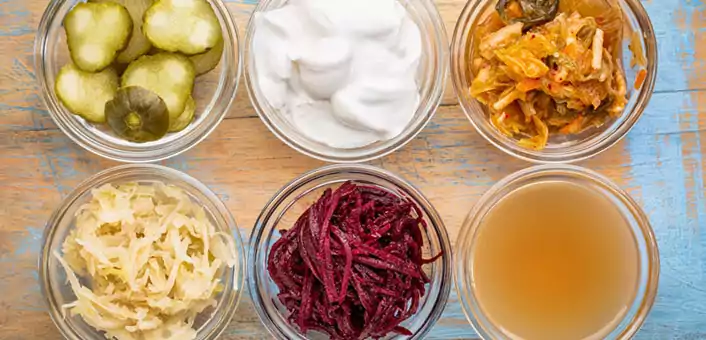PCOS test is based on the Rotterdam criteria for diagnosing PCOS.

Arthritis
Rheumatoid arthritis is an autoimmune disease in which the immune system attacks the lining between your joints. This makes the joints inflamed, stiff and painful. Recent studies have revealed a connection between joint inflammation and bacteria in the gut.
If harmful microorganisms and antigens enter your body, they attack other parts of your body, including your joints. One method to combat bad bacteria is to increase the concentration of healthy bacteria, or probiotics, in your gut. This makes probiotics a unique alternative treatment for rheumatoid arthritis.
According to a study by The National Center for Biotechnological Information, a daily dose of probiotics resulted in less activity and less inflammation of rheumatoid arthritis. Evidence suggests that the effect of probiotics can be seen even at locations far away from where they are administered. Listed below are some benefits of probiotics:
Natural sources of probiotics include yogurt, dark chocolate and kefir (a fermented dairy product). Additionally, you can also consume probiotics in the form of dietary suppements. If you want to include probiotics in your diet in the form of supplements, but don’t know where to begin, read our article on how to choose the right probiotic.
Kober, M.-M., & Bowe, W. P. (2015). The effect of probiotics on immune regulation, acne, and photoaging. International Journal of Women’s Dermatology, 85-89.
Mielants, H., Vos, M. D., Cuvelier, C., & Veys, E. (1996). The role of gut inflammation in the pathogenesis of spondyloarthropathies. Acta Clinica Belgica, 51(5):340-9.
Pineda, M. d., Thompson, S. F., Summers, K., Leon, F. d., Pope, J., & Reid, G. (2011). A randomized, double-blinded, placebo-controlled pilot study of probiotics in active rheumatoid arthritis. Med Sci Monit, 17(6): CR347-354.
Rao, R. K., & Samak, G. (2013). Protection and Restitution of Gut Barrier by Probiotics: Nutritional and Clinical Implications. Curr Nutr Food Sci. , 9(2): 99–107.